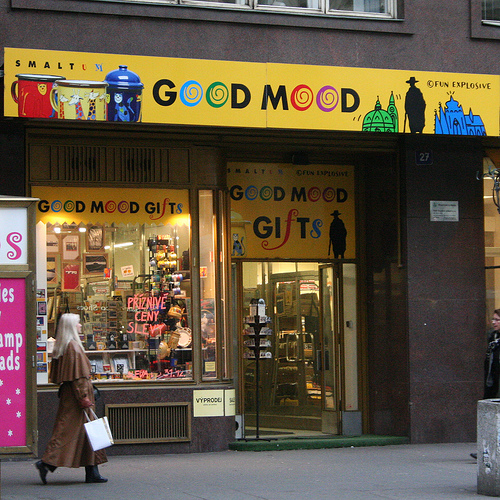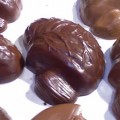If you have been reading this blog for a while, you know that I am very interested in how one’s mood and outlook affects one’s ability to study for the bar exam. If you can maintain a positive frame of mind while you are studying for the bar exam, it is my belief that the odds of your success improve exponentially.
I have written other posts about how to maintain a positive mood and I’ve even mentioned Julia Ross before, but now that I have read her book, The Mood Cure, I have a new appreciation for her theories.
What is the Mood Cure?
If there is one sentence in her book that summarizes Julia Ross’ thesis, it is the following: “I believe that the growing use of antidepressant drugs is a symptom of an epidemic of significant and crippling biochemical brain deficits caused largely by our increasingly stressful lifestyle combined with inadequate diet.”
The Mood Cure explains how to remedy these “biochemical brain deficits” and live the life that your proper biology – created by evolution over millennia – intended you to live.
Moods: True or False?
Ross begins her book by discussing the difference between true moods and false moods.
A true mood is something like grief over the loss of a loved one. It is correct and understandable to be grief-stricken. A false mood would be something like extreme anger that, when reflected upon a day or two later, seems to make no sense. Ross believes that these false moods are primarily the result of critical, unmet nutritional needs.
Ross identifies four false mood types: 1) depression and anxiety caused by inadequate serotonin; 2) the “blahs,” meaning that you lack energy and focus without the assistance of artificial enhancers like caffeine; 3) adrenal overload making you feel chronically wired and strained and affecting your memory; and 4) oversensitivity to pain due to deficiencies in endorphins.
The last thing you need while studying for the bar exam are unmet nutritional needs contributing to false moods. You need to be at the top of your game, not distracted by any of these four false moods.
With citation to peer-reviewed medical studies and the author’s own clinical experience, Ross definitively shows that nutrition can alleviate and usually cure the symptoms of these four false mood types.
Proper Nutrition
Ross breaks down the nutrition necessary to rid oneself of these false moods into two types: supplements and good mood foods.
Ross suggests that once you have identified which of the false mood types affect you (it could be one, could be all four), you begin taking a certain supplement regimen in order to quickly replace the missing nutritional elements from your body. Once these missing elements have been replaced, usually in days or weeks, your false moods should lessen or even disappear.
For example, if you are suffering from the false mood of depression and anxiety, it is almost certainly caused by a deficit of serotonin. The easiest way to replace your serotonin is to take amino acid supplements, either of tryptophan or 5-HTP. As an added bonus, the supplements promote healthy sleep, because serotonin is a necessary precursor to melatonin which is a sleep-inducing hormone.
How I used The Mood Cure
I myself have experienced periodic episodes of depression. It is never been so severe that I sought professional help, but there have been days when I had been in the dumps, and my outlook on life has been quite bleak. Furthermore, I typically have difficulty staying asleep one or two nights per week.
I decided to put Ross’ theory to test. I went to local health food store and purchased a bottle of 5-HTP. I followed Ross’ dosing schedule. The results were miraculous.
The first night, I fell asleep 15 minutes after taking the 5-HTP. I slept soundly and solidly until my alarm woke me up. I felt astonishingly refreshed, much more so than when taking melatonin. Furthermore, the next day I felt genuinely better and happier. My moods were more stable.
I continued taking 5-HTP for two more weeks. Every night I had a restful sleep, not once waking up during the night. My moods were elevated. When something happened at work or at home with my family that would normally upset me and push me into a bad mood, I was able to deal with it more rationally and without becoming disagreeable or bummed out.
Conclusion
If you are having problems with depression and anxiety or any of the other four false mood types, I recommend that you get Julia Ross’s book and decide for yourself whether amino acid therapy is right for you. (If you are on any anti-depressant medication, consult with your doctor before trying any of this!)
As mentioned above, the second step in Julia Ross’s mood cure is eating correctly. She argues that once you have remedied the deficiency through the use of supplements, you need to eat correctly in order to avoid a recurrence of the deficiency. I will discuss what she means by “good mood foods” in my next post.
Resource
Interview with Julia Ross on Underground Wellness Radio [brief ad before interview starts]:
***
[Photo: http://www.flickr.com/photos/bottspot/3304783567/]P.S. -- Want a FREE copy of my Bar Exam Mind audiobook?
You can get a free copy of my audiobook when you sign up for a free trial at Audible. Get the details by clicking here.






